HSBC 2005 Annual Report Download - page 80
Download and view the complete annual report
Please find page 80 of the 2005 HSBC annual report below. You can navigate through the pages in the report by either clicking on the pages listed below, or by using the keyword search tool below to find specific information within the annual report.-
 1
1 -
 2
2 -
 3
3 -
 4
4 -
 5
5 -
 6
6 -
 7
7 -
 8
8 -
 9
9 -
 10
10 -
 11
11 -
 12
12 -
 13
13 -
 14
14 -
 15
15 -
 16
16 -
 17
17 -
 18
18 -
 19
19 -
 20
20 -
 21
21 -
 22
22 -
 23
23 -
 24
24 -
 25
25 -
 26
26 -
 27
27 -
 28
28 -
 29
29 -
 30
30 -
 31
31 -
 32
32 -
 33
33 -
 34
34 -
 35
35 -
 36
36 -
 37
37 -
 38
38 -
 39
39 -
 40
40 -
 41
41 -
 42
42 -
 43
43 -
 44
44 -
 45
45 -
 46
46 -
 47
47 -
 48
48 -
 49
49 -
 50
50 -
 51
51 -
 52
52 -
 53
53 -
 54
54 -
 55
55 -
 56
56 -
 57
57 -
 58
58 -
 59
59 -
 60
60 -
 61
61 -
 62
62 -
 63
63 -
 64
64 -
 65
65 -
 66
66 -
 67
67 -
 68
68 -
 69
69 -
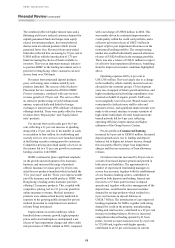 70
70 -
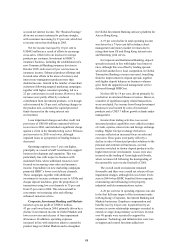 71
71 -
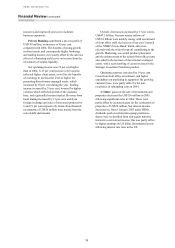 72
72 -
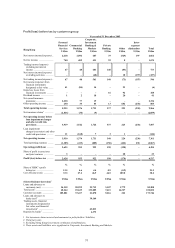 73
73 -
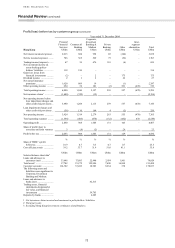 74
74 -
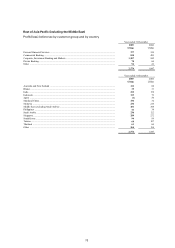 75
75 -
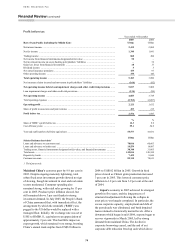 76
76 -
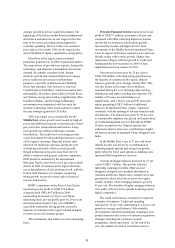 77
77 -
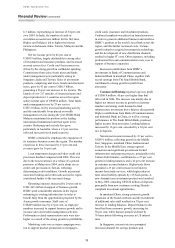 78
78 -
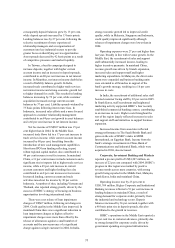 79
79 -
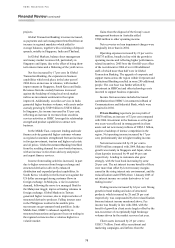 80
80 -
 81
81 -
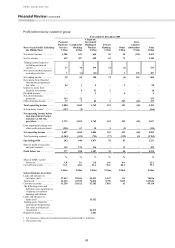 82
82 -
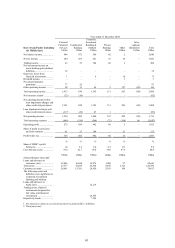 83
83 -
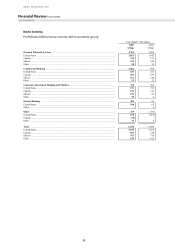 84
84 -
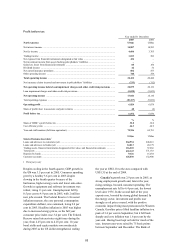 85
85 -
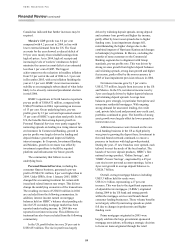 86
86 -
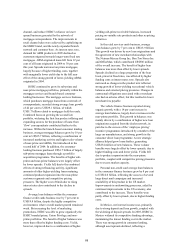 87
87 -
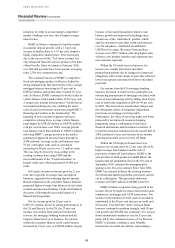 88
88 -
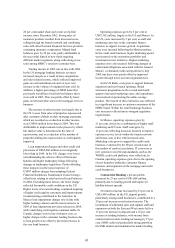 89
89 -
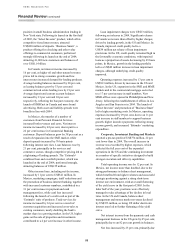 90
90 -
 91
91 -
 92
92 -
 93
93 -
 94
94 -
 95
95 -
 96
96 -
 97
97 -
 98
98 -
 99
99 -
 100
100 -
 101
101 -
 102
102 -
 103
103 -
 104
104 -
 105
105 -
 106
106 -
 107
107 -
 108
108 -
 109
109 -
 110
110 -
 111
111 -
 112
112 -
 113
113 -
 114
114 -
 115
115 -
 116
116 -
 117
117 -
 118
118 -
 119
119 -
 120
120 -
 121
121 -
 122
122 -
 123
123 -
 124
124 -
 125
125 -
 126
126 -
 127
127 -
 128
128 -
 129
129 -
 130
130 -
 131
131 -
 132
132 -
 133
133 -
 134
134 -
 135
135 -
 136
136 -
 137
137 -
 138
138 -
 139
139 -
 140
140 -
 141
141 -
 142
142 -
 143
143 -
 144
144 -
 145
145 -
 146
146 -
 147
147 -
 148
148 -
 149
149 -
 150
150 -
 151
151 -
 152
152 -
 153
153 -
 154
154 -
 155
155 -
 156
156 -
 157
157 -
 158
158 -
 159
159 -
 160
160 -
 161
161 -
 162
162 -
 163
163 -
 164
164 -
 165
165 -
 166
166 -
 167
167 -
 168
168 -
 169
169 -
 170
170 -
 171
171 -
 172
172 -
 173
173 -
 174
174 -
 175
175 -
 176
176 -
 177
177 -
 178
178 -
 179
179 -
 180
180 -
 181
181 -
 182
182 -
 183
183 -
 184
184 -
 185
185 -
 186
186 -
 187
187 -
 188
188 -
 189
189 -
 190
190 -
 191
191 -
 192
192 -
 193
193 -
 194
194 -
 195
195 -
 196
196 -
 197
197 -
 198
198 -
 199
199 -
 200
200 -
 201
201 -
 202
202 -
 203
203 -
 204
204 -
 205
205 -
 206
206 -
 207
207 -
 208
208 -
 209
209 -
 210
210 -
 211
211 -
 212
212 -
 213
213 -
 214
214 -
 215
215 -
 216
216 -
 217
217 -
 218
218 -
 219
219 -
 220
220 -
 221
221 -
 222
222 -
 223
223 -
 224
224 -
 225
225 -
 226
226 -
 227
227 -
 228
228 -
 229
229 -
 230
230 -
 231
231 -
 232
232 -
 233
233 -
 234
234 -
 235
235 -
 236
236 -
 237
237 -
 238
238 -
 239
239 -
 240
240 -
 241
241 -
 242
242 -
 243
243 -
 244
244 -
 245
245 -
 246
246 -
 247
247 -
 248
248 -
 249
249 -
 250
250 -
 251
251 -
 252
252 -
 253
253 -
 254
254 -
 255
255 -
 256
256 -
 257
257 -
 258
258 -
 259
259 -
 260
260 -
 261
261 -
 262
262 -
 263
263 -
 264
264 -
 265
265 -
 266
266 -
 267
267 -
 268
268 -
 269
269 -
 270
270 -
 271
271 -
 272
272 -
 273
273 -
 274
274 -
 275
275 -
 276
276 -
 277
277 -
 278
278 -
 279
279 -
 280
280 -
 281
281 -
 282
282 -
 283
283 -
 284
284 -
 285
285 -
 286
286 -
 287
287 -
 288
288 -
 289
289 -
 290
290 -
 291
291 -
 292
292 -
 293
293 -
 294
294 -
 295
295 -
 296
296 -
 297
297 -
 298
298 -
 299
299 -
 300
300 -
 301
301 -
 302
302 -
 303
303 -
 304
304 -
 305
305 -
 306
306 -
 307
307 -
 308
308 -
 309
309 -
 310
310 -
 311
311 -
 312
312 -
 313
313 -
 314
314 -
 315
315 -
 316
316 -
 317
317 -
 318
318 -
 319
319 -
 320
320 -
 321
321 -
 322
322 -
 323
323 -
 324
324 -
 325
325 -
 326
326 -
 327
327 -
 328
328 -
 329
329 -
 330
330 -
 331
331 -
 332
332 -
 333
333 -
 334
334 -
 335
335 -
 336
336 -
 337
337 -
 338
338 -
 339
339 -
 340
340 -
 341
341 -
 342
342 -
 343
343 -
 344
344 -
 345
345 -
 346
346 -
 347
347 -
 348
348 -
 349
349 -
 350
350 -
 351
351 -
 352
352 -
 353
353 -
 354
354 -
 355
355 -
 356
356 -
 357
357 -
 358
358 -
 359
359 -
 360
360 -
 361
361 -
 362
362 -
 363
363 -
 364
364 -
 365
365 -
 366
366 -
 367
367 -
 368
368 -
 369
369 -
 370
370 -
 371
371 -
 372
372 -
 373
373 -
 374
374 -
 375
375 -
 376
376 -
 377
377 -
 378
378 -
 379
379 -
 380
380 -
 381
381 -
 382
382 -
 383
383 -
 384
384 -
 385
385 -
 386
386 -
 387
387 -
 388
388 -
 389
389 -
 390
390 -
 391
391 -
 392
392 -
 393
393 -
 394
394 -
 395
395 -
 396
396 -
 397
397 -
 398
398 -
 399
399 -
 400
400 -
 401
401 -
 402
402 -
 403
403 -
 404
404 -
 405
405 -
 406
406 -
 407
407 -
 408
408 -
 409
409 -
 410
410 -
 411
411 -
 412
412 -
 413
413 -
 414
414 -
 415
415 -
 416
416 -
 417
417 -
 418
418 -
 419
419 -
 420
420 -
 421
421 -
 422
422 -
 423
423 -
 424
424
 |
 |

HSBC HOLDINGS PLC
Financial Review (continued)
78
projects.
Global Transaction Banking revenues increased,
as payments and cash management benefited from an
increase in regional mandates which added to
average balances, together with a widening of deposit
spreads, notably in Singapore, India and Thailand.
In Global Markets, balance sheet management
and money market revenues fell, particularly in
Singapore and Japan, due to the effect of rising short-
term interest rates and a flattening of the yield curves.
Net fees increased by 17 per cent. In Global
Transaction Banking, the expansion in business
capabilities which took place in the latter part of
2004 drove an increase in volumes, with marked
improvements in Singapore, South Korea and India.
Revenues from the custody business increased
against the backdrop of rising local stock market
indices as investment sentiment in the region
improved. Additionally, securities services in India
generated higher business volumes, with assets under
custody growing by US$9 billion to US$34 billion.
In Singapore, fee income increased by 55 per cent,
reflecting an increase in revenues from securities
services activities as HSBC leveraged its relationship
strength and product capabilities to attract new
business.
In the Middle East, corporate lending and trade
finance activity generated higher customer volumes
as regional economies strengthened from an increase
in foreign investment, tourism and higher real estate
and oil prices. Global Investment Banking benefited
from the resulting demand for cross-border business,
with an increase in fees from advisory and project
and export finance services.
Income from trading activities increased, in part
due to higher revenues from foreign exchange and
structured derivatives driven by enhanced
distribution and expanded product capabilities. In
South Korea, volatility in the Korean won against the
US dollar encouraged strong customer flows in
foreign exchange. In Malaysia, a rise in customer
demand, following the move to a managed float for
the Malaysian ringgit, improved trading volumes in
foreign exchange. Global Markets in Taiwan
generated higher revenues, due to improved sales of
structured derivative products. Falling interest rates
in the Philippines resulted in favourable price
movements on government bond portfolios. In the
Middle East, HSBC’s enhanced capability in
structured transactions and greater focus on trading in
the regional currencies drove volumes higher in a
volatile market.
Gains from the disposal of the Group’s asset
management business in Australia added
US$8 million to other operating income.
Net recoveries on loan impairment charges were
marginally lower than in 2004.
Operating expenses increased by 21 per cent to
US$733 million, broadly in line with the growth in
operating income and reflecting higher performance-
related incentives. 2005 bore the first full-year effect
of the recruitment in 2004 of over 600 additional
staff, of which more than half were in Global
Transaction Banking. The upgrade of corporate and
support teams across the region within Corporate and
Institutional Banking resulted in some 280 additional
people. The cost base was further affected by
investment in HSBCnet and other technology costs
incurred to support business expansion.
Income from associates included increased
contribution from HSBC’s investments in Bank of
Communications and Industrial Bank, which were
acquired in 2004.
Private Banking reported a pre-tax profit of
US$78 million, an increase of 32 per cent compared
with 2004. Investment in the business over the past
two years was reflected in strong growth in client
assets and net new money inflows of US$2.3 billion,
against a backdrop of intense competition in the
region. Net operating income increased by 17 per
cent, predominantly due to higher trading income.
Net interest income fell by 29 per cent to
US$30 million compared with 2004. Balance sheet
growth was mainly in Singapore and Japan, where
client deposits increased by 44 and 64 per cent
respectively. Lending to customers also grew
strongly, with the loan book increasing by some
26 per cent. The net interest income benefits of these
were more than offset by lower treasury margins
earned in the rising interest rate environment, and the
reclassification under IFRSs from 1 January 2005 of
net interest income on certain derivatives to ‘net
trading income’.
Trading income increased by 62 per cent. Strong
growth in bond trading and sales of structured
products, which increased by 28 and 20 per cent
respectively, was compounded by the reclassification
from net interest income mentioned above. Fee
income was broadly in line with 2004, with the
benefit of growth in client assets largely offset by the
non-recurrence of exceptionally high brokerage
volumes driven by the market recovery last year.
Client assets increased by 23 per cent to
US$13.7 billion. Front office recruitment and
marketing campaigns, and inflows from the
